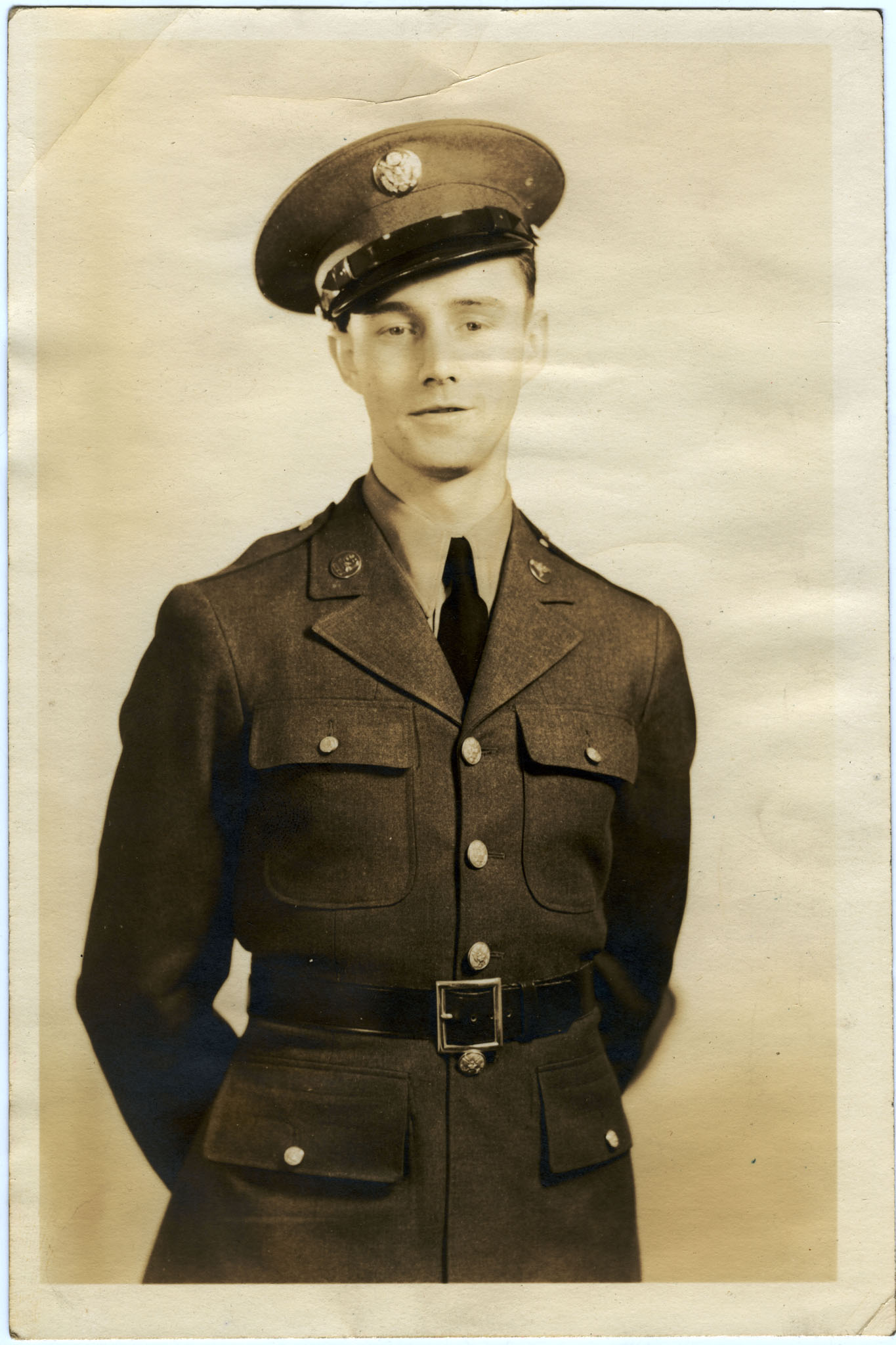Background on William H. Freeman

Bill Freeman, ca.1941
Bill Freeman's brief life came to a tragic end when he contracted malaria as a prisoner of war in the Philippines during the early years of the Second World War. The eldest of five children of Louis W. and Sarah V. Freeman, Bill was born on April 14, 1920, and raised in working class Athol, Mass. Despite the hardships of the Great Depression, his parents strung together a series of jobs that supported the family -- his father working as a painter and factory watchman, his mother in a tool factory and at a restaurant -- enabling Bill to continue in school. Known for his talent as a singer, he won an amateur night contest as a junior and was serious enough at his craft to study with the Fortier Music and Dramatic Studios in Worcester and to perform publicly in central Massachusetts as a bass soloist.
After receiving his diploma from Athol High School in 1938, Freeman made ends meet as a reeling worker at the Athol Manufacturing Company, a manufacturer of artificial leather, until the growing threat of war made him rethink his future. With war looming in both Europe and Asia, he left civilian life to enlist in the Army Air Corps on October 2, 1940, joining the 20th Air Base Group as part of the Far East Air Force. Stationed at Nichols Field in the Philippines early in 1941, Freeman was among the thousands of American and Filipino servicemen taken prisoner by the invading Japanese army, and although he survived the Bataan Death March, he succumbed to cerebral malaria at the Cabanatuan Prison Camp on July 10, 1942. He was reinterred and buried with his parents in Gethsemane Cemetery in Athol.

